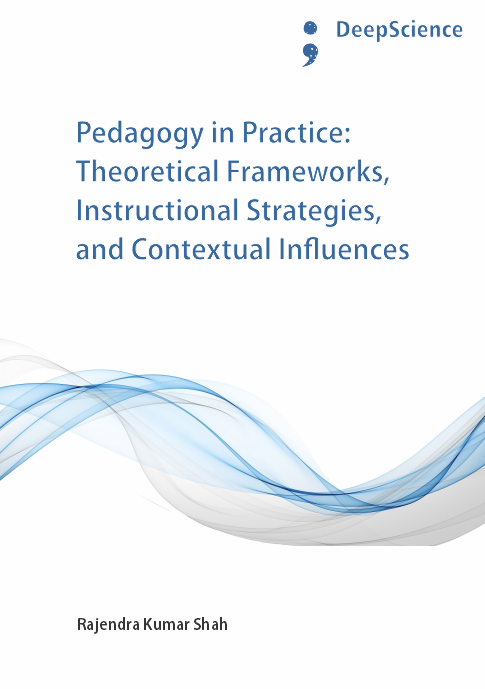Pedagogy in Practice: Theoretical Frameworks, Instructional Strategies, and Contextual Influences
Keywords:
Teacher-Centred Teaching, Behaviourism, Lecture Method, Positivist Pedagogy, Traditional Education, Didactic Teaching, Classroom Management, Passive Learning, Direct InstructionSynopsis
Teaching is an inherently intricate, intellectually demanding, and multifaceted endeavor. Since antiquity, eminent educational philosophers, from Socrates and Plato to contemporary scholars, have engaged in profound discourse on optimizing pedagogical effectiveness. With the institutionalization of formal education, teaching predominantly evolved within a teacher-centered paradigm, a model that continues to exert considerable influence in educational settings. However, mounting critiques of this approach have catalyzed the advancement of learner-centered pedagogy. Notably, Rousseau’s advocacy for child-centered pedagogy served as a pivotal foundation for subsequent theoretical and practical developments in learner-centered pedagogy. Consequently, efforts are underway to integrate this paradigm, to varying degrees, into educational systems across the globe.
During the 1970s, the field of education witnessed the emergence of groundbreaking intellectual discourses that critically examined various dimensions of formal education, including its objectives, pedagogical frameworks, curricular structures, and assessment methodologies. This period also marked the growing recognition of education as an inherently political enterprise, inseparable from broader sociopolitical dynamics. Within this context, the distinguished educational theorist Paulo Freire conducted a profound critique of conventional education systems, characterizing them as the "banking model of education." He vehemently opposed traditional instructional practices, advocating instead for a critical and emancipatory pedagogical approach designed to facilitate societal transformation.
The teaching-learning process can be categorized into teacher-centered, learner-centered, and transformation-centered approaches, each with distinct philosophical underpinnings and pedagogical implications. However, a significant gap persists in the availability of comprehensive scholarly resources that facilitate an in-depth assessment of these pedagogical paradigms. How can teacher-centered pedagogy be refined to optimize its efficacy? Despite its emphasis on active engagement, learner-centered education has also been subject to critique - how can its limitations be systematically addressed to enhance instructional effectiveness? Furthermore, what constitutes transformative education, and how can it be meaningfully integrated into classroom practice? These questions are of paramount significance to educators, parents, students, educational administrators, and curriculum developers. This book endeavors to explore these critical themes, with the aspiration that it will provide valuable insights to its readers, however modest the impact may be.













